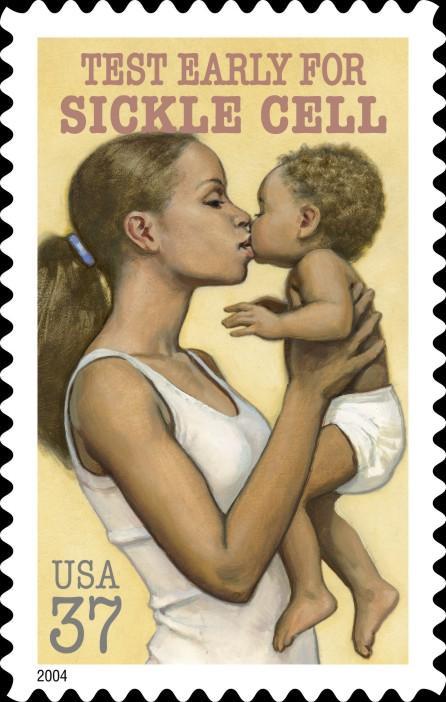
This month has been designated to reflect on the children and adults whose lives have been affected by the disease.
An estimated 100,000 people in the U.S. have sickle cell anemia, an inherited, lifelong disorder that affects the red blood cells. While the disease is most common among African Americans, it also occurs in people of Hispanic, Indian, Caribbean, Mediterranean, Middle Eastern, and South Asian descents as well.
An estimated two million people in the U.S. are sickle cell carriers, meaning that though they have no symptoms, they have inherited one sickle cell gene from a parent and could pass it along to their children. When two sickle cell carriers have a child together, there is a 25% chance that the child will be born with the disease. Although there is no cure for sickle cell anemia, treatment of some symptoms are available and early detection can lead to better management of complications.
For more information on Sickle Cell Anemia, visit the Sickle Cell Disease Association of America.
September is National Sickle Cell Disease Awareness Month
This month has been designated to reflect on the children and adults whose lives have been affected by the disease.
An estimated 100,000 people in the U.S. have sickle cell anemia, an inherited, lifelong disorder that affects the red blood cells. While the disease is most common among African Americans, it also occurs in people of Hispanic, Indian, Caribbean, Mediterranean, Middle Eastern, and South Asian descents as well.
An estimated two million people in the U.S. are sickle cell carriers, meaning that though they have no symptoms, they have inherited one sickle cell gene from a parent and could pass it along to their children. When two sickle cell carriers have a child together, there is a 25% chance that the child will be born with the disease. Although there is no cure for sickle cell anemia, treatment of some symptoms are available and early detection can lead to better management of complications.
For more information on Sickle Cell Anemia, visit the Sickle Cell Disease Association of America.
Posted on Monday, September 10th 2012, by Chief Of Affections